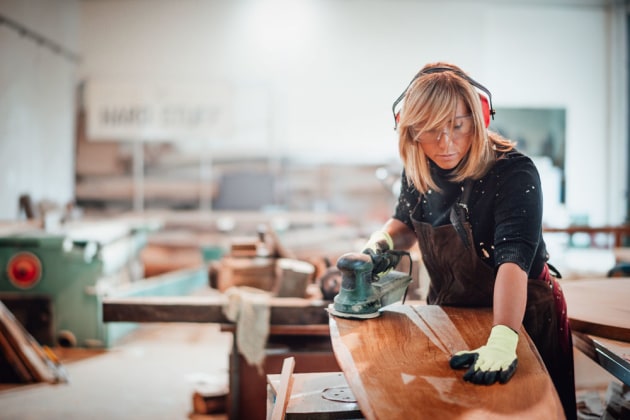Financing a Pro or Amateur Workshop, Without Getting Carried Away
SPONSORED BY SAVVY
When it comes to workshop equipment and what you need, it’s easy for any woodworker to get carried away. With so much to choose from, you can always find justification for that latest gadget.
Let’s face it, though, we could all do with being a little less emotional about the tools we purchase. Often, what you’d ideally like to have won’t be essential – although that’s not always the case. So, how do you know when to buy and when to make do? Well, this brief article will show you how to get better equipment more cheaply and put you in the right frame of mind when you plan your workshop.
1. Buy the best equipment, buy once
Tools are a long-term investment, and you get what you pay for – pretty much without exceptions. If you run a pro shop, that attitude will reflect in both the quality of your output and the longevity of your kit. Amateurs will end up with tools that last a lifetime.
It can be tempting to buy budget equipment when you’re getting started, but it’s typically a false economy. Begin with the essentials, purchase the best quality you can afford, and then build up your workshop as you go.
2. Choose when and how you finance wisely
Especially if you’re running a business, budgeting is an essential skill. However, even the amateur craftsman needs to think clearly when it comes to buying tools. Don’t let your heart rule your head here, otherwise woodworking can fast turn into an expensive hobby. Is it better to wait for that new table saw until you can afford it? Or, does the quality of your work deem it absolutely essential right now?
We all experience times when we need that extra piece of equipment to complete an order or do a great job on a specific project. When that happens, just be careful how you fund the purchase. Pay particular attention to interest rates when you borrow. For instance, credit cards come with far higher costs than personal loans – they typically have rates around 20%, and there isn’t a finite repayment structure.
Do yourself a massive favour and seek an instant cash loan. You’ll find a far friendlier interest rate and a set repayment structure you can tailor to your budget or project

3. Use techniques, not too many tools
Remember, with woodworking; a little knowledge can save you money. Always do your research and look for ways to double up tasks on specific tools. For example, do you really need both a planer and a jointer?
If you’re on a tight budget, buy a quality planer now and spend some money on a great jointer later. One of the best things about doubling up in the workshop is it leads to new skills and can give you better insight into the mechanics of wood, how grain works, and stop you from relying purely on your kit.
4. Timing is everything
When you buy is almost as crucial as what you buy; planning ahead can save you money. Coming up on tax time, nearly every tools manufacturer and retailer in the country will have an End of Financial Year Sale. Also, keep in touch with your suppliers – sign up for email newsletters so you never miss out on a flash sale.
The past year or so has been pretty much unprecedented, and we’ve all experienced significant disruption. However, events have given many amateurs extra time in the workshop, and there’s also one significant positive for pro woodworkers - the government has now extended the Instant Asset Write Off Scheme through 2023, making it a great time to invest in equipment.




